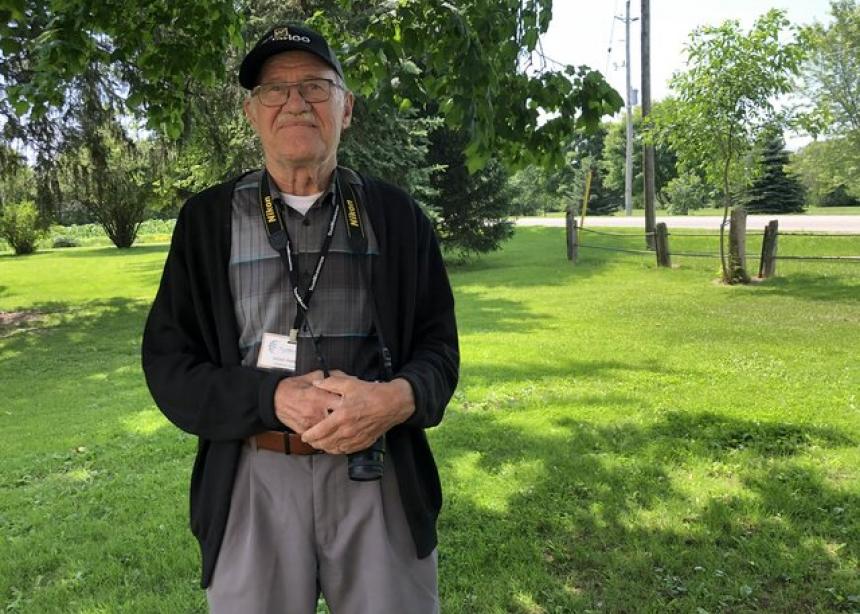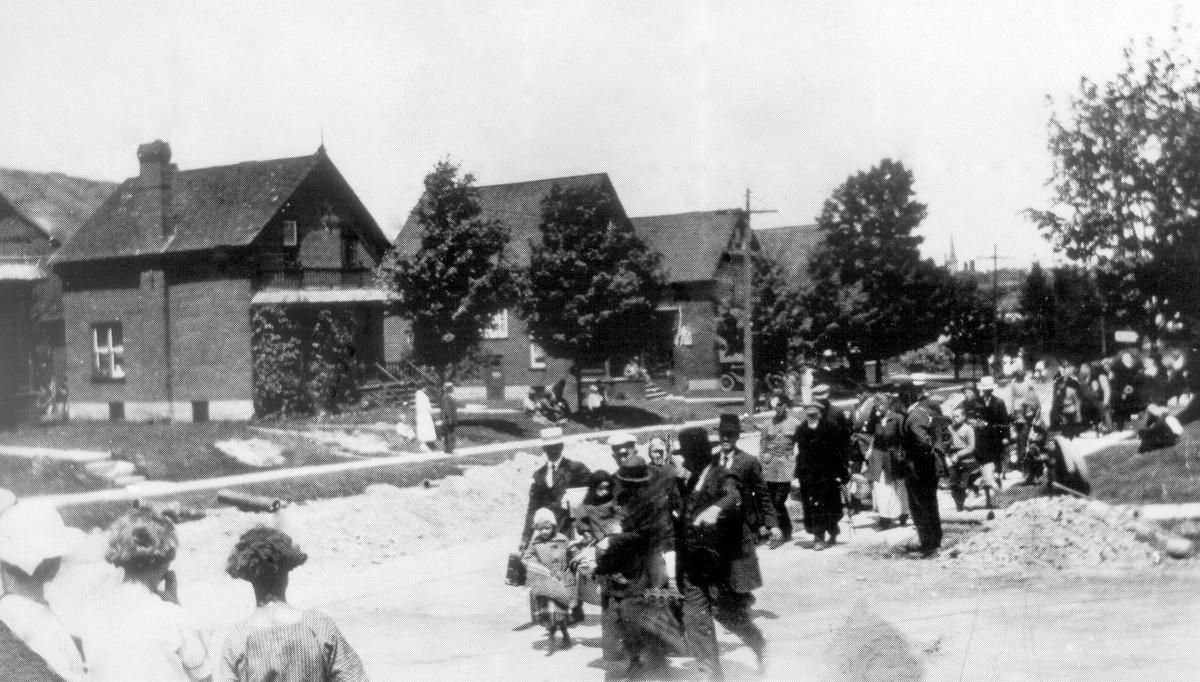
When Victor Hiebert was growing up in the 1930s in Waterloo, Ontario, he heard a lot about the Reiseschuld—the travel debt owed to the Canadian Pacific Railway (CPR).
His parents and two older sisters had come to Canada from the Soviet Union in 1924, among the 900 or so Mennonites who arrived in Waterloo on July 19 of that year.
Their journey was made possible by credit extended to them by the CPR. Altogether, a total of $1.7 million was loaned to the immigrants by the railway.
The large group disembarked from the train and walked up Erb Street to Erb Street Mennonite Church to meet their new hosts—an experience captured by a photographer 99 years ago.
After getting settled, the main goal for these families was paying back the CPR the money it had loaned them to come to Canada. That included Victor’s parents.
Victor, born in 1931 in Canada, was too young to know what that meant. All he knew was that it got in the way of him getting the things he thought he needed as a young boy to make his life better and more complete.
“I don’t remember what I asked for, but I always remember my mother saying, ‘We can’t afford it. We have to pay off the Reiseschuld,’” said Victor, a participant in “Memories of Migration: Russlaender Tour 100.”
His family paid off the debt in the 1940s, but the experience of leaving their home in the Soviet Union was never forgotten.
“The topic came up often,” he said. “It was traumatic for them.”
Of that iconic photo of the Russlaender walking up Erb Street in 1924, Victor says: “Every time I see it, I look to see if I can find them.”
So far, he hasn’t been able to do so, but memories of the Reiseschuld, and their journey to Canada, have stayed with him forever.

John Longhurst is a freelance writer from Winnipeg who is blogging about the tour.
